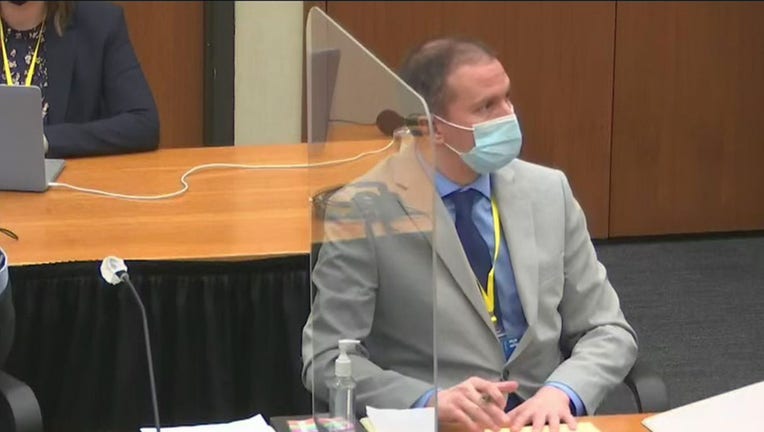Derek Chauvin trial: Closing arguments expected on Monday

Derek Chauvin in court on Tuesday, April 6. (FOX 9)
MINNEAPOLIS (FOX 9) - On Monday lawyers for the state and Derek Chauvin’s legal team are expected to present their closing arguments before Judge Cahill reads the jury their instructions and passes the case to them.
"It’s bringing everything together," trial lawyer Michael Bryant, from Bradshaw and Bryant explains.

Derek Chauvin trial: Closing arguments expected on Monday
On Monday lawyers for the state and Derek Chauvin’s legal team are expected to present their closing arguments before Judge Cahill reads the jury their instructions and passes the case to them.
Bryant explains that the state will show jurors how they proved each element of every charge. Derek Chauvin is facing second-degree and third-degree murder charges as well as second-degree manslaughter. The jury will decide if the state proved each element of each charge.
"The key for the State is going to be going down each of the elements of each of the crimes and saying ‘here’s how we met this and these are the items that you can go to and say here’s why we met this here’s why we met that,’" Bryant said.
The defense does not have the burden of proof. Bryant says their closing arguments will focus on presenting questions to the jury that the state was unable to answer, pointing out holes in the state’s case and bringing up testimony that contradicts the state’s case.
Closing arguments are expected to last Monday morning. The State will present their arguments first, then the defense, then the state will get a chance to present a rebuttal, giving them the final word.
After closing arguments, Judge Cahill will give the jury their instructions. This is the guide the jurors will use to decide if the state has proven each element of each charge beyond a reasonable doubt.
"This is really what it’s all about, is the jury making a decision. One of the big things you come to realize when you’re trying cases is it comes down to them making their decision. It’s not about how good of a trial they tried, how good of a trial was tried by the other one, it’s all so you can give it to them and they can go make the decision," Bryant said.
Jurors will be sequestered for the entirety of deliberations. They will stay in hotel rooms overnight and have very limited contact with the outside world until they reach their decision.

